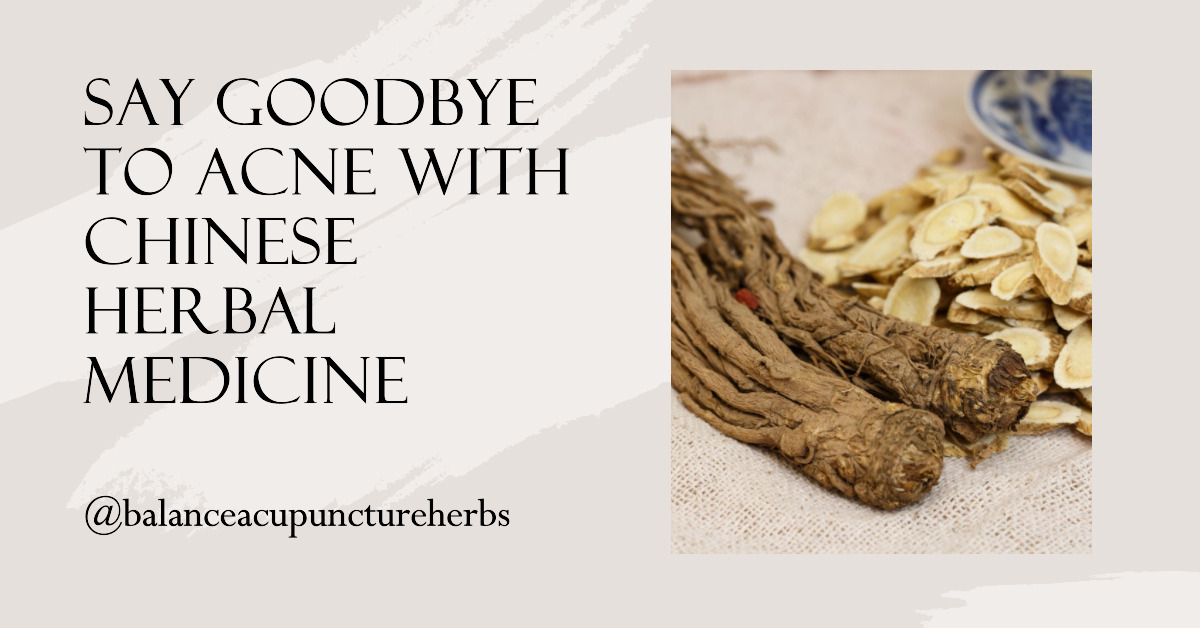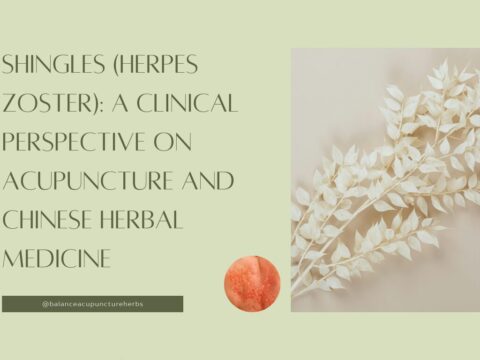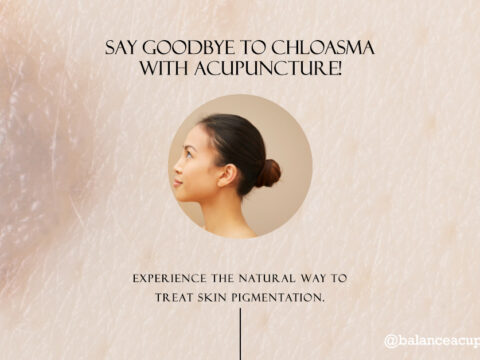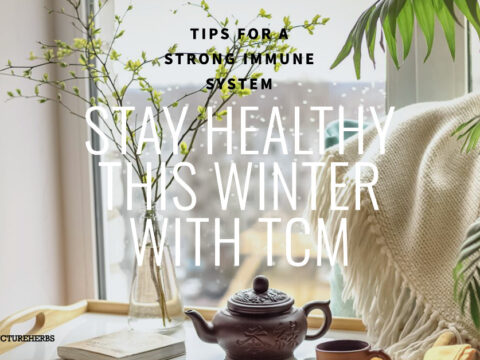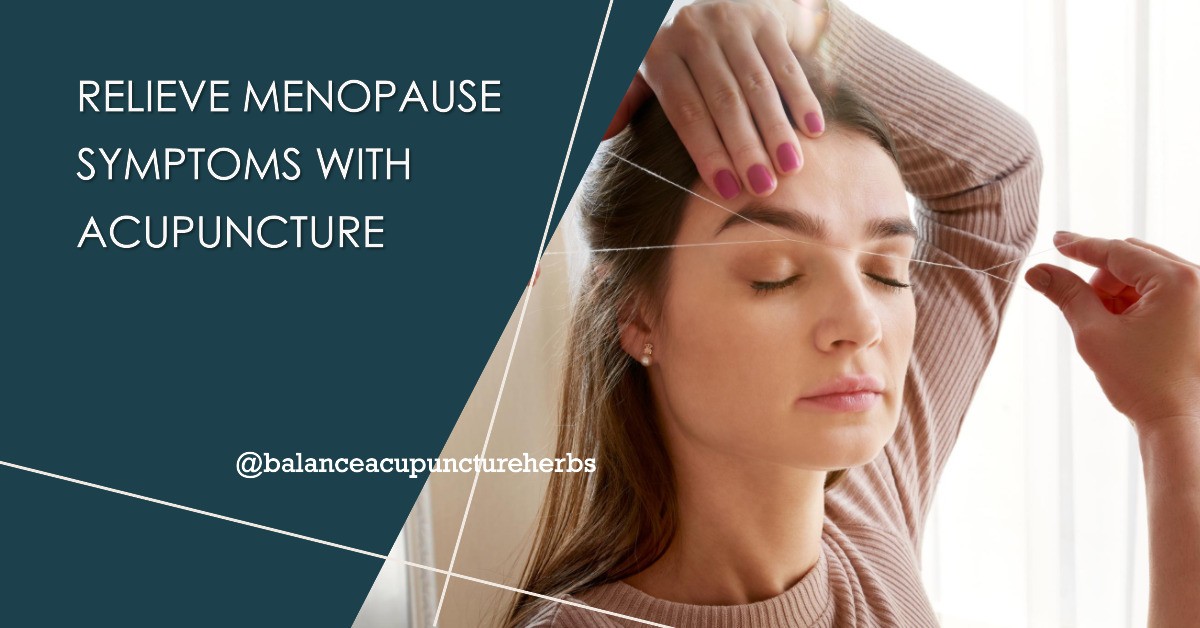
Relieve Menopause Symptoms with Acupuncture
September 28, 2023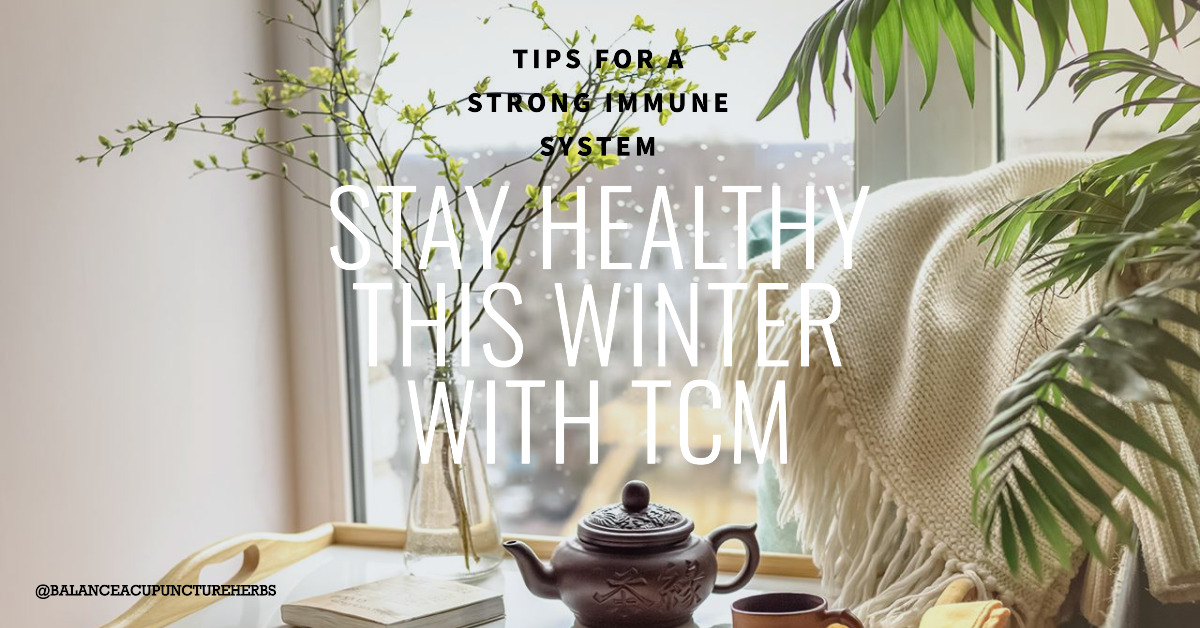
Winter Health Tips in TCM
October 29, 2023|
Getting your Trinity Audio player ready...
|
How to Treat Acne with Chinese Herbal Medicine
Acne is a common skin condition affecting millions of people worldwide. It can cause physical and emotional distress and lower self-esteem and confidence.
Many common treatments for acne include antibiotics, retinoids, and benzoyl peroxide. However, some people may have side effects or become resistant to these medications. Moreover, these treatments may not address the underlying causes of acne, which can vary from person to person.
Type of Acne
Understanding the different types of acne can help in determining the most effective treatment options. Here are the primary types of acne:
1. Comedonal Acne:
– Description: This type of acne is characterized by the presence of comedones, which are clogged hair follicles. Comedones can be open (blackheads) or closed (whiteheads).
– Causes: Comedonal acne occurs when excess oil (sebum), dead skin cells, and bacteria accumulate in the pores. Hormonal changes, particularly during puberty, menstruation, or pregnancy, can exacerbate this condition.
– Treatment: Over-the-counter topical treatments containing salicylic acid or benzoyl peroxide are often effective. Regular exfoliation can also help prevent clogged pores.
2. Inflammatory Acne:
– Description: This type includes papules and pustules, which are red, inflamed bumps on the skin. Papules are solid, raised lesions, while pustules contain pus.
– Causes: Inflammatory acne occurs when the clogged pores become infected with bacteria, leading to inflammation. Factors such as hormonal fluctuations, stress, and certain medications can contribute to this type of acne.
Treatment: A healthcare provider may prescribe topical retinoids, antibiotics, and anti-inflammatory medications. In more severe cases, doctors may recommend oral medications like isotretinoin.
3. Nodular Acne:
– Description: Nodular acne consists of large, painful lumps beneath the skin’s surface. These nodules can be quite severe and may take a long time to heal.
Causes: Like inflammatory acne, clogged pores and bacteria cause nodular acne. However, it affects deeper layers of the skin. Hormonal imbalances and genetic predisposition can also play a role.
– Treatment: Treatment often requires a combination of oral medications, including antibiotics or isotretinoin, and possibly corticosteroid injections to reduce inflammation.
4. Cystic Acne:
– Description: Cystic acne is a severe form of acne that results in painful, pus-filled cysts deep within the skin. It can lead to significant scarring if not treated properly.
Causes: Hormonal changes often link to this type of acne, particularly.
Traditional Chinese Medicine and Acne
For a natural way to treat your acne, consider using Chinese herbal medicine. Chinese herbal medicine is part of traditional Chinese medicine (TCM). It uses different plants, minerals, and animal products. The goal is to restore balance and harmony in the body.
TCM views, acne results from internal imbalances such as heat, dampness, blood stasis, or qi stagnation. Impact meridian are lung and stomach meridians toxins in the outer. Factors such as diet, lifestyle, stress, hormones, or environmental toxins can cause these imbalances.
Chinese herbal medicine helps treat acne. It cools heat, cleanses heat the lungs, detoxifies the intestines, and heals the skin. Your TCM practitioner may give you a special mix of herbs. You can take this mix by mouth or apply it to the skin.
In Traditional Chinese Medicine (TCM), practitioners view acne as a problem that involves the whole body. It examines how the body’s systems work together. It also looks at the effects of outside factors. Additionally, it explores how different elements interact within the body.
Traditional Chinese Medicine (TCM) does not merely view acne as a skin issue. Instead, it views acne as a sign of deeper imbalances in the body. Here are some key concepts that explain the root causes of acne in TCM:
1. Qi Stagnation
In TCM, “Qi” (pronounced “chee”) refers to the vital life force that flows through the body. When Qi gets stuck because of stress, emotions, or lifestyle choices, it can cause heat and toxins to build up. This standstill can manifest as acne on the skin, particularly on the face. People frequently regard the face as an indicator of internal well-being.
2. Heat and Dampness
Acne is often associated with the concepts of “heat” and “dampness” in TCM. Heat can come from different sources. These include a poor diet, like eating too much spicy or greasy food.
Emotional stress and hormonal changes can also cause heat. Dampness refers to excess moisture in the body, which can also contribute to skin issues. When heat and dampness combine, they can obstruct the skin’s pores, leading to inflammation and the formation of acne.
3. Blood Deficiency
In TCM, practitioners closely link the health of the skin to the quality of the blood. Blood deficiency can result from poor nutrition, chronic illness, or excessive physical or mental exertion.
When blood is low, it may not nourish the skin well. This may lead to skin dehydration, lack of radiance, and increased acne flare-ups. People often characterize this condition by pale skin and a lack of vitality.
4. Spleen and Stomach Dysfunction
The Spleen and Stomach play crucial roles in digestion and the transformation of food into Qi and Blood. If these organs do not work well, it can cause dampness and heat to build up in the body. An unhealthy diet, irregular eating habits, or overconsumption of cold and raw foods can cause this dysfunction. The resulting imbalance can contribute to skin issues, including acne.
5. Liver Imbalance
The Liver is responsible for the smooth flow of Qi and emotions in the body. Emotional stress, anger, or frustration can lead to Liver Qi stagnation, which may generate
Chinese Herbal Medicine for Acne
Some of the common Chinese acne remedies used for acne treatment are:
Licorice root: This herb is good for clearing up heat and toxins in the body. It also has anti-inflammatory and antibacterial properties that can help reduce redness and infection. Licorice root works powerfully and naturally to restore skin harmony
Honeysuckle flower: Many people often use this herb in face washes and masks. It can help clear heat and dampness from the lungs and stomach, which are the main organs involved in acne formation.
Forsythia fruit: This herb is also effective for clearing heat and dry dampness from the lungs and stomach. It can also help eliminate pus and inflammation from the skin.
Dandelion: This herb is a natural detoxifier that can help cleanse the blood and liver. It can also help reduce swelling and pain from acne lesions. It also reduce acne scar.
Mint: This herb can help cool down the heat in the body and refresh the skin. It can also help regulate oil production and prevent clogged pores.
In addition to using acne Chinese herbs, you may also find other TCM methods helpful. These include acupuncture, cupping, and dietary therapy. Acupuncture and cupping can moving stagnant blood and help detoxify the body. You can use needles or suction cups on certain points to achieve this.
Dietary therapy can help you avoid processed foods that increase heat and dampness. This encompasses hot, oily, deep-fried, and sugary foods.
Instead, focus on eating foods that nourish your skin and blood. Optimal selections include leafy green vegetables, fruits, nuts, and seeds.
How Long Does It Take to See Results From Chinese Herbal Medicine for Acne?
The time it takes to see results from Chinese herbal medicine for acne can vary. This depends on the person’s condition, body type, the herbs used, and how well they follow the treatment plan.
Some sources say it may take 1 to 2 weeks to see some improvement. It may take longer for bigger changes. Being patient and consistent with Chinese herbal medicine for acne is important. You should also consult a qualified TCM practitioner for the best results.
Chinese herbs for acne is not a quick fix or a one-size-fits-all solution. It requires patience, consistency, and cooperation with your TCM practitioner. If you stick to the treatment plan and make some lifestyle changes, you might see significant improvements in your skin and health.
Read More:
What can Chinese medicine help with Sciatica?
During an acupuncture treatment, is the pain good or not?
Facial Acupuncture: When to see the result?
Is Facial cosmetic acupuncture a safer alternative to surgery or Botox?
[wpseo_address show_state=”1″ show_country=”1″ show_phone=”1″ show_phone_2=”0″ show_fax=”0″ show_email=”0″ show_logo=”0″]
[wpseo_map max_number=”undefined” width=”400″ height=”300″ zoom=”-1″ map_style=”roadmap” scrollable=”1″ draggable=”1″ show_route=”0″ show_state=”0″ show_phone=”1″ show_phone_2=”0″ show_fax=”0″]

